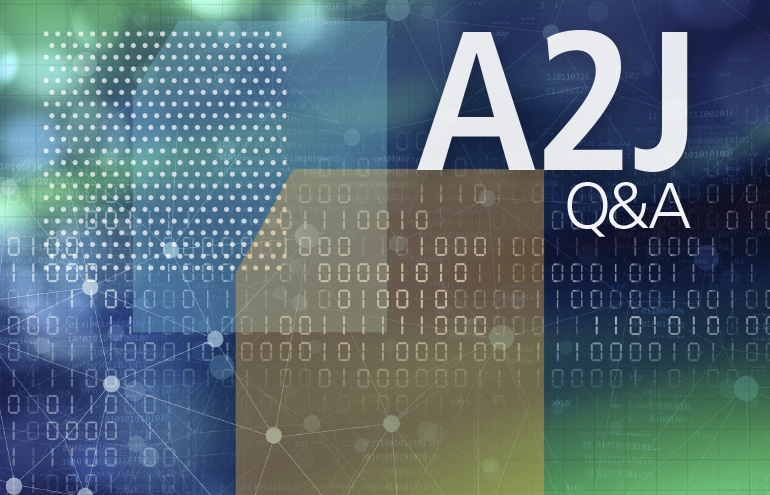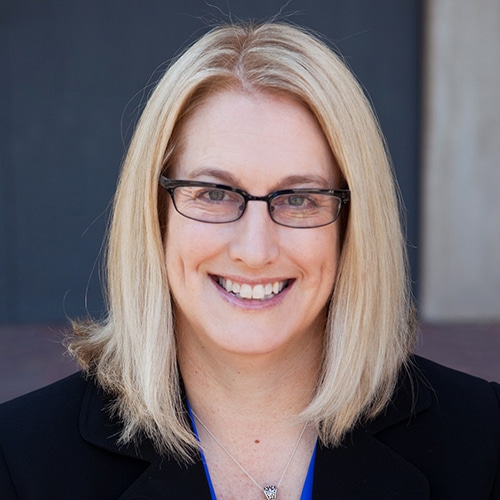In Attorney at Work’s A2J Q&A series, Mary Juetten checks in with lawyers, bar leaders and entrepreneurs working to solve the access to justice problem.
I had the pleasure of meeting Michael Fiffik through Elevate by LegalShield in 2017 and LegalShield’s work on equal justice. Mike and I share a love for small business. Mike comments, “I enjoy working with entrepreneurs who are the engine of our economy. I appreciate their passion for what they do and willingness to take risks. Business owners who want to make a difference in their communities while making a living get my special attention.”
Mike is a shareholder at Welch, Gold, Siegel & Fiffik, P.C. in Pittsburgh, where he counsels businesses in all stages of their lifecycles from conception, formation, growth, maturity, expansion and exit. His clients operate a diverse range of ventures and he has substantial experience facilitating financial transactions, including venture investments, acquisitions and sales of privately held companies, strategic alliances, secured lending arrangements, restructuring, corporate governance and employment issues.
Mike received his law degree from the University of Pittsburgh in 1992 and his undergraduate degree from Penn State University (Go Lions!). He was selected as a Pennsylvania Super Lawyer for 2011–2018 in the areas of business, corporate and real estate law and is AV Peer Review Rated by Martindale-Hubbell in corporate law, litigation and business law. He is an active member of the Pennsylvania and Allegheny County Bar Associations. He is a two-time recipient of the Leadership Award for excellence in management and providing services to members of LegalShield.
Quick Answers
- When I was a kid I wanted to be: A cowboy.
- My greatest accomplishment: My three awesome daughters.
- Never forget to: I don’t remember.
- I work best: Under pressure.
- My best ideas come from: Everyone else!
- The toughest lesson I’ve learned is: There’s always someone better at this than me.
- My pick-me-up is: Alternative music.
- My attitude towards life is: Try to do your very best but have fun while doing it.
- Best advice I’ve ever received is: Don’t sweat the small stuff.
Productivity Habits
Describe your morning routine.
I work out most mornings, catch up on my favorite sports teams and head to the office.
What is the first thing you “check” each morning?
See if the coffee pot worked — gotta have the caffeine.
What’s your best productivity habit?
Meeting with the various teams that I manage on a regular basis. It keeps us all on the same page, accountable and projects moving along.
What’s your favorite productivity tool?
My iPhone.
What’s the one habit you wish you could kick?
Working on what interests me the most versus what’s most urgent and important.
The toughest lesson you’ve learned?
You can’t please everyone all the time.
What’s your nightly routine?
Make dinner and clean up, check the mail, make lunches for my daughters, get my uniform ready for the next day and read two pages of a book (if lucky) before nodding off.
What do you let slide?
Planning in advance to have some fun.
A Deeper Dive into Mike’s A2J Commitment
How do you define access to justice (A2J)?
Having access to helpful legal advice when you need it with minimum friction at a cost you can afford.
If viewed from the perspective of meeting the needs of its consumers, our current system of access to justice is failing and it’s not even a close call.
You get about as much justice as you can afford and the number of those who can afford it is shrinking.
Unresolved legal issues can lead to individual and family instability that ultimately affects the income, health and well-being of individuals with unmet or under-met legal needs. Sadly, the brilliant design of our justice system has devolved into a system of haves and have nots.
How are you solving access to justice for your clients?
I’m blessed to be a provider attorney for LegalShield. LegalShield’s concept is one that the A2J movement should take seriously as one way to solve the problem. LegalShield helps take the transaction out of the relationship between the legal system and consumers. It restores the relationship to what it was intended to be: transformational, not transactional. As an attorney, it’s refreshing to be empowered to skip the transactional conversation with my clients (“this going to cost you $XX, can you pay that?”) and go directly to a transformational conversation — to get right to providing solutions to the legal problem at hand in order to make a difference in a life.
What role does technology play in access to justice?
Technology functions best to reduce the friction between connecting a consumer to an attorney whom they need when they need him or her. Also, technology allows a consumer to initiate a request for service on their time through a variety of media including telephone, email, apps and mobile devices. The consumer can be prompted to provide the important information necessary to move from information gathering to problem-solving right away. It facilitates scheduling a time when both the consumer and attorney are available and prepared to discuss the legal matter and start providing solutions. It can ease communication of data and information in a confidential way as well. Overall, it can make the process faster, better and more effective.
Do you see the “digital divide” (access to technology) as an issue?
Very much so. The business of providing legal services has resisted innovation of all kinds over time and technological advancements have faced some of the stiffest resistance. Although our rules of ethical conduct appear to be focused on the consumer, they are not very consumer friendly from the standpoint of making access to justice accessible and affordable. Attorneys have been particularly resistant to technologies that transform the client experience.
Do you see client knowledge of legal issues (or the education gap) as an issue?
This might be the biggest victim of an increasingly inaccessible justice system. That inaccessibility is a baked-in paradigm for many people. Consumers have lots of problems, from trivial to traumatic, that would benefit from advice, consultation and intervention from a qualified attorney. But getting an attorney involved does not enter a consumer’s mind in most of these instances because of the unaffordability paradigm. That’s our, both attorneys and legislators, fault and we have to own that and fix it.
What is your best tip for supporting access to justice?
The Legal Services Corporation spent $385 million in 2017 to provide services to 1.8 million people. Private corporations donate millions to programs intended to benefit the very population that is most impacted and would benefit the most from access to justice. More funding is certainly needed, but in the short-term, I would suggest that A2J funders find ways to provide services to a greater number of consumers. Innovation and creativity are needed to make this happen.
Where is the A2J movement going?
The problem is gaining recognition at the highest levels of the legal system. However, there is a lack of creativity in finding solutions. Much of that lack of creativity derives from the same mindset that restricts innovation. The most cited solution? More pro bono work by attorneys. We’ve had pro bono work ever since there was an access to civil justice problem.
Pro bono work is honorable and laudable, but as a single solution to the problem, it’s a total failure.
The pace of the A2J problem is far beyond what any additional pro bono work can satisfy.
That said, there are some signs of innovation. Medical-legal partnerships are growing in number and acceptance. The healthcare industry understands the connection between legal issues and better health outcomes and is providing both funding and connections between their patients and the legal services that they need. Group legal service providers can be big players in the A2J solution, but those providers must find their place in the existing system and devise a strategy to bring their substantial resources in attorney networks to bear to help solve the problem.
Where are YOU going?
I try to keep an eternal perspective.
Access to justice is not just for individuals, company owners can risk their family wealth without legal advice. Learn more at this year’s Elevate by LegalShield in Denver on June 20- 22.
Find out more information about Welch, Gold, Siegal & Fiffik, P.C. here and about Michael Fiffik here.
Read additional A2J interviews by Mary Juetten here.

















